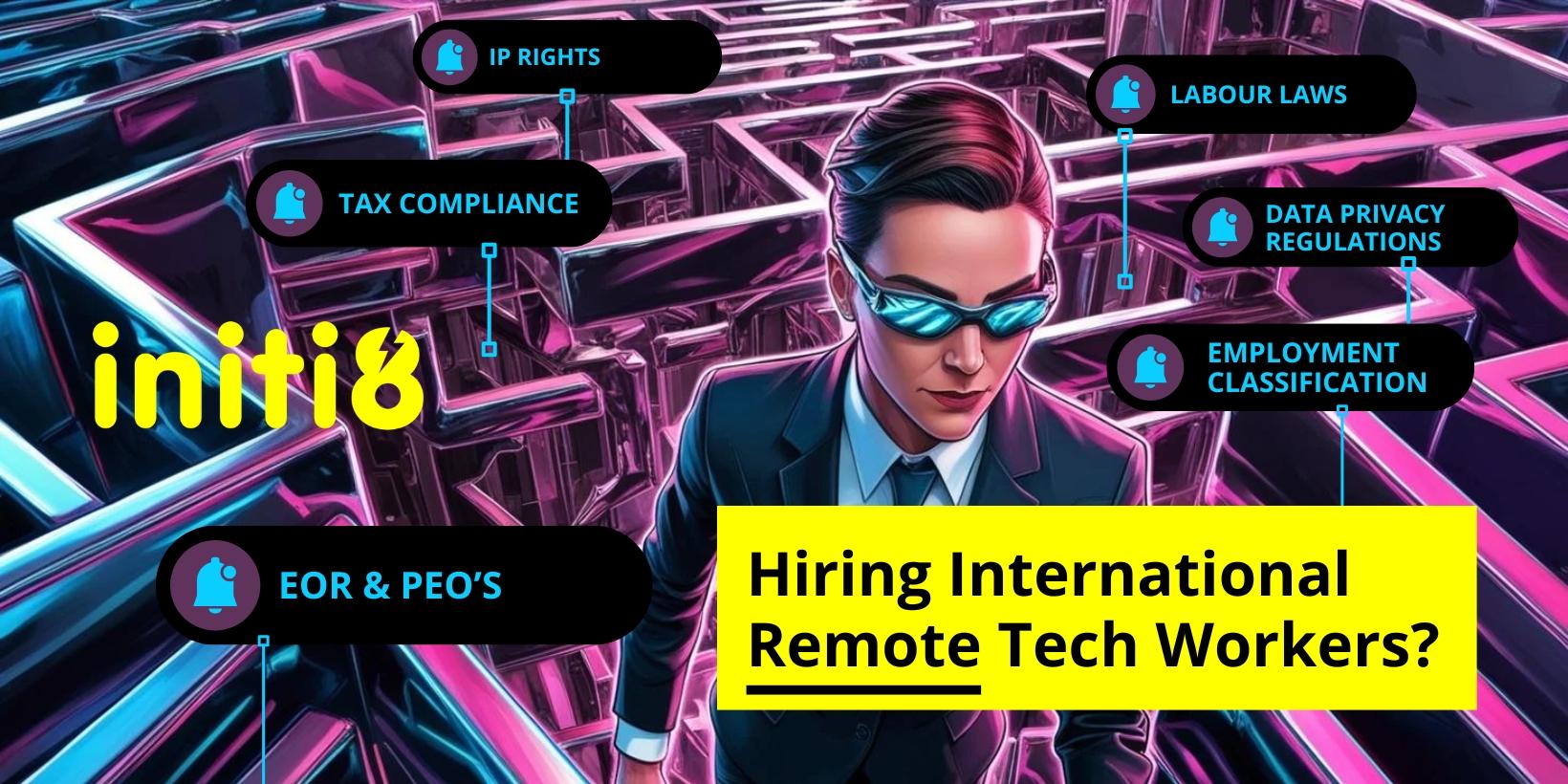
We're guessing you are here because you are ready to level up your team with some international talent?
Before you start collecting dev superstars like rare Pokémon, let's talk about the legal considerations that come with hiring remote tech workers from around the globe. It's time to put on your cyberpunk shades and dive into the legal matrix of digital employment!
The Remote Work Revolution in Numbers
First, let's share some really important data. According to the World Economic Forum, remote global jobs are expected to skyrocket to a mind-boggling 92 million roles by 2030. That's more lines of code than you can shake a mechanical keyboard at! This surge in remote work opportunities is transforming the tech industry faster than you can say "blockchain."
Legal Considerations: More Complex Than a Quantum Algorithm
When hiring international remote tech workers, you're not just dealing with different time zones – you're navigating a labyrinth of legal systems. Here are some key areas to keep focused on:
1. Employment Classification:
- Is your next remote tech worker an employee or a contractor? This classification can have significant legal and tax implications. Misclassification could lead to penalties more painful than a critical bug in production code
.
2. Labour Laws:
- Each country has its own set of labour laws. Some might require a 13th-month salary, while others mandate specific vacation days or working hours.
3. Tax Compliance:
- International hiring comes with a tangled web of tax obligations. You might need to withhold taxes, make social security contributions, or navigate double taxation treaties. It's enough to make even the most hardcore data scientist's head spin!
4. Data Privacy Regulations:
- With regulations like GDPR in Europe, ensuring proper data handling is crucial. Violating these rules could result in fines that would make even the most well-funded startup or cash rich scaleup sweat.
5. Intellectual Property Rights:
- When your distributed team is creating the next big thing, you need to ensure that IP rights are clearly defined and protected across jurisdictions.
The EOR and PEO Solution - Like an API for Global Hiring
Now, before you start considering a career switch to international law, there's a more elegant solution. Enter Employers of Record (EORs) and Professional Employer Organizations (PEOs). Think of them as your global hiring API – they handle the complex backend processes while you focus on building your dream team.
EORs, like our partner Oyster, are particularly suited for international hiring. They act as the legal employer of your remote workers, handling everything from compliant contracts to payroll, taxes, and benefits. It's like having a dedicated DevOps team for your global workforce!
PEOs, on the other hand, are more focused on the US market. They operate on a co-employment model, sharing employment responsibilities with you.
Oyster x Initi8 Partnership is the Power Up You Need
Here's where it gets exciting: Initi8 and Oyster have joined forces to create the ultimate global hiring powerhouse.
This partnership allows you to seamlessly hire talent in 180+ countries around the world. It's like having a universal adapter for your global hiring needs!
Don't let legal complexities hold you back from assembling your international dream team.
Remember, in the world of tech, boundaries are just another problem to solve.
With the right partners, you can build a diverse, talented team that spans the globe.
So, if you are ready to press 'Start' on your international hiring journey - speak to one of our team or visit Oyster here to find out more.
Author
Initi8
Date
01 April 2025




